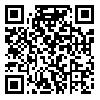Volume 6, Issue 38 (3-2019)
2019, __(38): 22-45 |
Back to browse issues page
Abstract: (3053 Views)
The purpose of this study was to investigate the effect of teaching critical thinking skills on students' social and cognitive development. This quasi-experimental study was performed using pre-test and post-test with control group. The statistical population consisted of all seventh grade female students in Karaj in the academic year 95-96. Multistage cluster sampling method was used for sampling. For this purpose, all the girls' schools in Karaj were divided into four groups according to their location and then we randomly selected one district and two schools from that district. So that from the first school one class was taught for critical thinking skills and the other from the school one was assigned to the control group. The number of subjects was based on Cohen's table with effect size of 0.50 and test power of 0.97, sample size for experimental group 24 and control group of 24 persons. The instruments used in the study were Matson's Social Skills Questionnaire (1983) and Neural Cognitive Skills Questionnaire (2013). Descriptive statistics was used for data analysis and multivariate analysis of variance (MANOVA) was used for inferential statistics. The results showed that there was a significant difference between the mean scores of social skills and cognitive skills of students who were trained in Critical Thinking and compared to students who were trained in the usual way in schools and increased their skills. Social skills and cognitive skills.
Type of Study: Research Paper |
Subject:
Educational Programing
Received: 2017/12/17 | Accepted: 2019/10/16 | Published: 2019/10/16
Received: 2017/12/17 | Accepted: 2019/10/16 | Published: 2019/10/16
| Rights and permissions | |
 | This work is licensed under a Creative Commons Attribution-NonCommercial 4.0 International License. |

